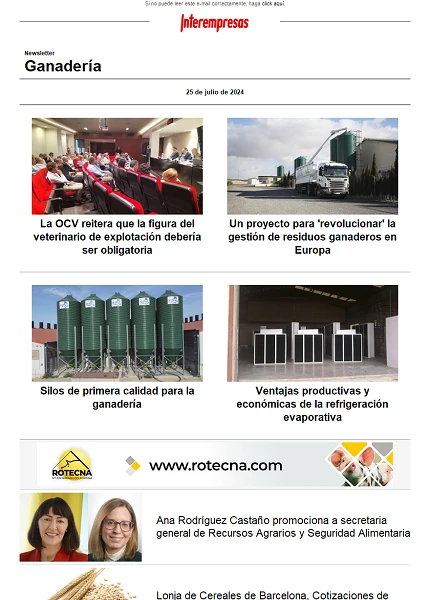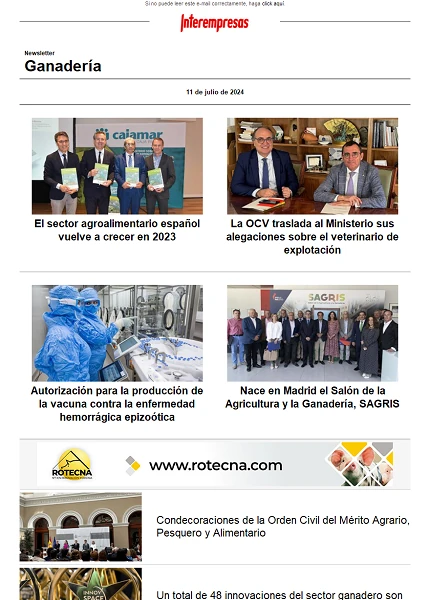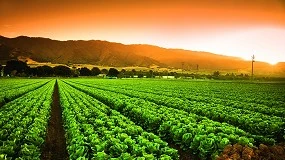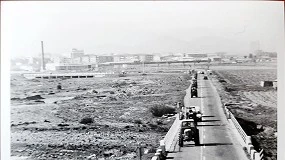Anagrasa organizes a workshop on legal and environmental changes for animal by-products
July 7, 2011
The issues of the sector of the processing of fats and animal by-products have been the focus of attention in the series of conferences that have shaped the day technique of Anagrasa 2011, held on 28 June in Toledo. Within the framework of the latest edition of the Congress of the Association that brings together companies involved in this activity, have seen a hundred people, both members of this Association, as representatives of the Administration and various sectors, such as biofuels or feed.
The opening of the technical conference was conducted by Valentín García, President of the National Association of industries transformer of fats and animal by-products (Anagrasa), who has given welcome to the hundred of the 2011 technical conference attendees, included associates of the Association of enterprises, representatives of the Ministry of environment and Rural Environment and Marino (MARM) as well as several agri-food and energy sectors.
Hand in hand with Beatriz Álvarez, project manager of the biofuels producers Association (APPA), the first of the papers has focused on the requirements of sustainability of biofuels and the involvement in the industry of animal fats. In the light of the environmental, social, economic and technical advantages Alvarez stated that the European Commission (EC) "devoted to biofuels as the main sustainable alternative to gasoline and diesel in transport in the next decade".
Directive 2009/28/EC (directive on renewable energies - DER) establishes the goal of 10% of renewable energy sources in transport in 2020, in addition to sustainability criteria for biofuels to reduce greenhouse gas emissions minimally greenhouse (GHG). "This obligation will promote the use of animal fats and oils used in the manufacture of biodiesel," explained Beatriz Álvarez.
On the other hand, the strategy of the EC for the next five years is heading to revise different aspects related to the livestock sector in the European Union (EU): the list and the age limit of the MER, strategy of surveillance of BSE, scrapie eradication measures and the ban on the inclusion of certain products in the feed. The last time on this last issue is which has dealt with Elena Martínez Valdivia, Assistant Director-general Deputy of conservation of resources and Animal nutrition, the General Directorate of agricultural and livestock resources of the MARM. "The future reintroduction of the PAT in the animal feed translates into a second roadmap of TSES, whose next milestone for the lifting of the ban of the PAT is the vote in the plenary of the European Parliament (EP) on 5 July", said Martinez Valdivia. The resulting decision will set out to consultation of the Council and the Member States of the EU. In this regard, the Spanish position is inclined by lifting the ban, arguing the guarantee represents the fulfilment of sanitary conditions for the transformation of material origin and processed by-products plants, guarantee that represents the fulfilment of the requirements of traceability and specific conditions (HACCPP) by processing animal feed establishments and the availability of suitable analytical techniques.
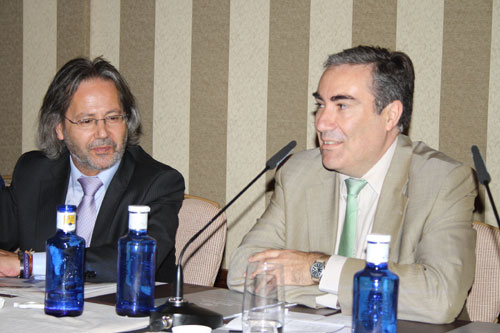
The new legal framework is based on Regulation (EC) No. 1069 / 2009 of the European Parliament and the Council and (EC) No. 142/11 of the Commission Regulation which implements the previous rules. "It aims to prevent and minimize the risks to public health and animal health posed by such products and, in particular, to preserve the security of the human food chain and animal, at the same time that it is reducing the administrative burden, simplifying controls and reduce the costs to operators", Pablo López has argued.
There are changes in the requirements of these by-products processing plants, as well as intra-Community shipments, import and export, as has listed the ministerial representative, who has come to describe the rest of modifications in the wording of the Royal Decree, in the light of the interventions from the audience of the day Anagrasa technique in sight difficult to understand and whose issues, as the small quantities of by-products (up to 20 kg) to withdraw from the butchers and reverse logistics, still are a matter of controversy in the transformation of fats and animal by-products sector, given the important volume is within the traditional distribution (400 tonnes/year), according to sources at Anagrasa, which have also announced that its technical Committee will meet in July to address issues relating to the project of Royal Decree SANDACH.
Similarly, the Act on waste and soils Contaminados has starred in Conference Alice chicken Albéniz, the Sub-Directorate General of sustainable production and consumption, of the Directorate-General for quality and environmental assessment of the MARM. The content of the standard is quite closed and only subtract the go-ahead from the Congress of the amendments approved by the Senate. The application of this law to animal by-products has been summarized by Albéniz in these terms: "when are they intended for incineration, landfills, or to be used in a biogas or composting plant, but the corpses of animals that have died so different from the sacrifice will be eliminated in accordance with regulation 1069 / 2009. The Act seeks flexibility in the context of authorization and communication of waste producers and aims to reduce the administrative burden for producers of hazardous waste.
As a brooch ANAGRASA technology day conference time, Marta Puig, representative of this organization, in the heart of the Standing Technical Committee of EFPRA, the European Association of processing industries of animal by-products has addressed issues relevant at Community level.
It is issues relating to regulations (EC) 1069 / 2009 and 142/2011; to the transit, export and import of the by-products of category 1 and 2 and PAT; the definition of the category of frying oils; dioxin; to the reintroduction of the PAT, (EU) 575/2011 the Commission Regulation of 16 June 2011 on the catalogue of raw materials for animal feed and the draft of the Royal Decree of SANDACH and the provisions specific to application in 1069 regulations Spain / 142/2011 and 2009.
The closing ceremony was carried out by Emilio García Muro, Assistant Director-general of operations and systems of traceability of agricultural and livestock resources of the MARM and Secretary of the National Commission for SANDACH.


